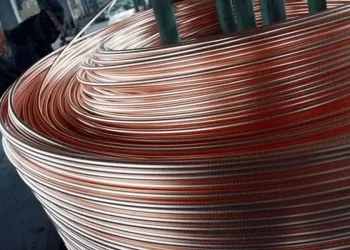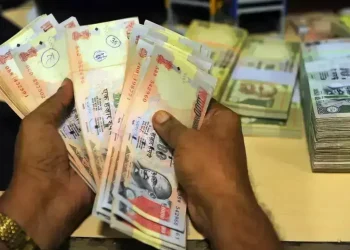- The Chinese yuan is one of the top contenders challenging the USD’s dominance as a reserve currency.
- However, Beijing may not be fully supportive of making the yuan the reserve currency of choice.
- Key challenges include Beijing’s unwillingness to open its capital accounts or to run a deficit.
A debate over de-dollarization has raged on for the past year, fanned by fears that Washington’s weaponizing the US dollar-denominated global financial system against Russia over the Ukraine war.
Even high-profile investors have weighed in — sanctions that squeezed Russia’s dollar currency reserves “increased the perceived risk that those debt assets can be frozen in the way that they’ve been frozen for Russia,” billionaire investor Ray Dalio cautioned.
Consequently, various countries started lining up non-dollar currencies and alternative assets to use in trade and to stash in their reserves.
Enter, the Chinese yuan.
The Chinese currency is having its moment in the sun as a potential challenger to the US dollar-dominated global payments system.
While the currency isn’t the greenback challenger, it is the most high-profile contender, against the backdrop of US-China tensions and Beijing’s alliance with Russia amid the Ukraine war.
China, too, has forged deals with Moscow and other countries keen to use the yuan for trade and payments as it looks to broaden the use of its currency internationally.
However, it would be difficult for any asset or currency to unseat the US dollar, much less the yuan. As it is, even the use of the euro is a far second to the greenback.
And more importantly, Beijing wouldn’t want a complete de-dollarization and the yuan to be the major reserve currency of choice for the world too, a China economy expert told Insider.
Here’s why even China isn’t that keen on de-dollarizing the world economy and making the yuan the top reserve currency.
1. China doesn’t want to liberalize its currency and allow money to move freely in and out of its economy
Even though China appears keen to upset the global dominance of the US — it only wants to do so on Beijing’s terms, says Rory Green, the chief China economist at London-based consultancy TS Lombard.
The People’s Bank of China has moved cautiously over the past decade to promote greater use of yuan without disrupting financial security and it’s unlikely to upset that dynamic now, Green wrote in an April 28 note seen by Insider.
This stability is maintained through the use of capital controls — that is, a grip on how much foreign money can move in and out of China’s economy, which in turn influences the foreign currency exchange rate.
Beijing’s policy has typically leaned toward having such controls, as it considers them as prerequisites for an independent, sovereign monetary policy, wrote Green.
Such controls that China deems necessary for financial security and stability mean “Beijing can never fully liberalize its current account, but it can still pursue RMB internationalization,” Green added, referring to the yuan by its official name, the renminbi.
Rather than pushing for the yuan to become the dominant global reserve currency of choice, Beijing is likely to pursue its sphere of currency influence among countries it trades with actively — such as Asia — breaking up US dollar dominance in parts of the world instead, Green told Insider in a subsequent interview.
But there could be some wiggle room on Beijing’s position.
“There’s always been the option in China to change capital controls. Except, for Beijing, the question has been whether the global environment would support this — are there enough nations who will adopt yuan?” Abishur Prakash, the CEO of The Geopolitical Business, a Toronto-based advisory firm, told Insider.
“Today, the answer is yes, as many nations have already signed on to using yuan, giving China the signal it needs to change gears,” he added.
2. China doesn’t want to and cannot afford to run a persistent deficit like the US
The US dollar’s position and clout as a reserve currency comes at a cost — a current account deficit for America.
That’s because there’s more global demand for US dollars than American demand for imports, which are also being paid for using the greenback.
So, the US will need to contend with ever larger amounts of deficit, in order to maintain its pre-eminent reserve currency position. This paradox was first put forth to Congress by Yale economist Robert Triffin in 1960.
The drawback to running a current account deficit is that it leaves a country vulnerable to unexpected shifts in global capital flows, per Bloomberg.
As Reuters’ John Kemp explained in 2009, the US has been running larger budget and current account deficits than most other countries simply because it’s the issuer of the world’s principal reserve currency.
“As the global economy expanded, demand for reserve assets increased. These could only be supplied to foreigners by America running a current account deficit and issuing dollar-denominated obligations to fund it,” wrote Kemp.
While China is the world’s second-largest economy right now, it just cannot afford to run a persistent deficit like the US, said Green.
“China is politically unwilling and economically unable – barring significant structural reform – to run a sustained current account deficit and to provide sufficient supplies of RMB assets globally,” wrote Green.
3. Beijing faces many geopolitical risks, so China needs alternative assets too
One key challenge for any currency taking on the US dollar as the world’s dominant reserve currency is the greenback’s outsized dominance.
Right now, even the euro’s role is larger than the yuan.
In April, 43% of all global payments made via SWIFT were made in the US dollar, while 32% was made in the euro. Just 2.3% of the SWIFT transactions were made in the yuan.
Meanwhile, the US dollar accounted for the lion’s share, or 54%, of global foreign exchange reserves in the fourth quarter of 2022 as well, according to data from the International Monetary Fund.
The euro accounted for 20% of the reserves, while the yuan made up just 2.5% of this stash.
This means there’s a lack of wide-ranging choices when it comes to reserve assets — which is a problem for the Chinese central bank as well, wrote TS Lombard’s Green.
That’s because the institution would have to hold its yuan-denominated bonds in massive amounts — similar to the US Fed, which now holds a huge amount of its assets in Treasury securities.
Given the issues standing in Beijing’s way, it’s unlikely for the yuan to take over the greenback’s position as the world’s reserve currency of choice, said Green.
These stumbling blocks come on top of other challenges outside China’s control, including inertia in the global financial system, Stanford historian Niall Ferguson told CNBC on May 1.
“Geopolitics and China’s economic heft is driving – and will continue to drive – RMB adoption for trade and reserve holdings. Greater international use of the RMB will provide channels for sanctions-busting, but the dollar is not under threat,” wrote Green.









